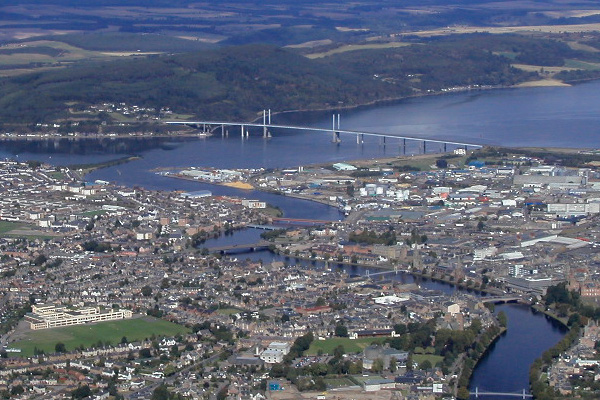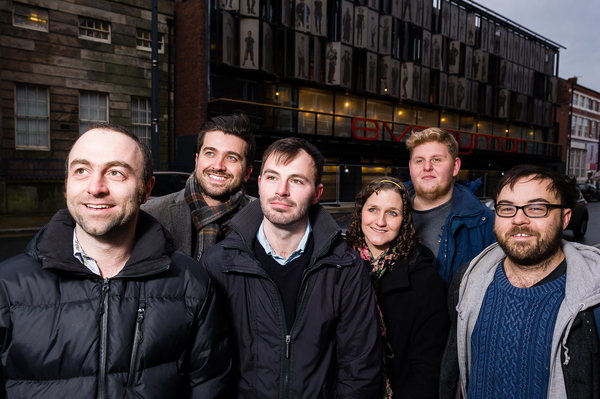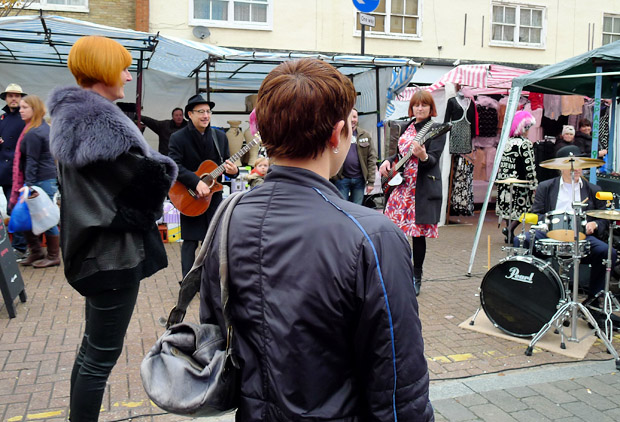Liverpool: What’s Your Big Idea?

Inverness had a big idea. It wanted to be the capital of the Highlands, and needed to attract brains, brawn and businesses to make it happen. Not enough for them the day tripping Nessie watchers and the Shearing coach parties.
But Inverness had a problem: Aberdeen was where the oil money was, and Glasgow and Edinburgh the only Scottish cities with any real international clout.
So Inverness offered a bounty - a £25,000 incentive for families wanting to relocate, and work in the far north. Now it’s Britain’s fastest growing city, a biomedical, renewable energy and digital media hub, where 90% of the city’s smart workforce is paid above the national average.
Inverness’ Big Idea. It paid off.
Liverpool? When we talk about our life sciences ambitions we talk of us being ‘as big as Singapore’ (just as Joe Anderson said LIMF will be ‘bigger than the Edinburgh Festival’). The comparisons are odious and ridiculous and show us less as city that champions ambition, but as one with with a conceited idea of our place in the world. And one that really hasn’t been out much.
The world’s best cities don’t feel the need to size each other up at the urinal. They do their thing. They have belief. They have Big Ideas.
Nantes was never exactly on the tourist map. Economic difficulties closed much of the city’s shipbuilding yards and related industries. The city council had a Big Idea. In 2001, a major redevelopment scheme was launched, and the warehouses of the former shipyards were given over to the Machines of the Isle created by two artists, who now front La Machine and Royal De Luxe. We’ve seen their spellbinding work in the city. And we may do again.
In 2004, Time named Nantes as “the most liveable city in Europe”. In 2010, Nantes was named a hub city for innovation in the Innovation Cities Index, and the city was ranked 36th globally from 289 cities and 4th overall in France for innovation. Are the two facts connected? We’d say they were. The town got its Mojo back, an international brand, and exposure (in the form of oversized elephants and deep sea divers) the like of which no PR campaign could ever compete with.
Then there’s Manchester. Which big idea do we pick? The fact that, 15 years ago, it saw that markets had a future, invested, built a strong team (for year round and special events) and was the first UK city to import the continental-style Christmas market to our shores, in 1999 - a full SEVEN years before Liverpool.
Travel experts, Frommers, rate Manchester’s Christmas market among the world’s top ten. It attracts 1.5m visitors to the Albert Square site alone – with estimates of 7m visitors across the city’s nine other sites, generating tens of millions of pounds for the local economy. Liverpool’s big idea? To give the markets to Geraud. Genius.
Cities with big ideas are cities that plan for a future they control - for a future they shape. Rather than moaning about cut backs and recession, they think their way out of trouble.
And they’re not all big hitters, either.
Bruce Springsteen’s Youngstown is a rust belt city in America’s Ohio heartland. But, with the collapse of the steel industry, the town began to shrink, as residents fled to look for work elsewhere. But, despite its deteriorating reputation, Youngstown refused to give up.
The town Council had a big idea - a radical one at that - The Youngstown 2010 Plan.
The plan? To make a cleaner, and smaller Youngstown. To embrace downsizing - to snatch a chink of hope from the jaws of defeat. Not to bleat, moan, and threaten Draconian cuts. To think, to commit, and to act.
By downsizing the city’s infrastructure to match its declining population, Youngstown fully embraced the model of the shrinking city - and its resultant benefits. It tore down warehouses and abandoned houses to make green spaces, urban gardens and growing plots - and, while they were at it, safer, more liveable neighbourhoods.
The plan also called for diversification in the economy, which used to be almost entirely based on manufacturing. Tax incentive programmes attracted investment throughout the city. Business Incubators favoured new tech with zero business rates and, now, the town is turning around. In 2007, it was named America’s fastest growing technology town. Downtown has been transformed from a ghost town to a vibrant location for restaurants, bars, apartments and other businesses.
What’s Liverpool’s big idea? I mean, apart from wiping out the bus lanes, and begging Peel to start building a whole new city (because, what, we’ve given up one this one? And, what exactly, is the Liverpool Waters idea, anyway?)
We’re not denying the scale and seriousness of the city’s budgetary woes. But we’re sick of the rhetoric coming from Dale Street: of fear and loathing, of sackcloth and ashes, of cultureless summers and winters of discontent. We are, as my mum says, where we are. The question is: where do we go from here?
We look to our leaders for ideas. That’s a currency Liverpool’s never been short of in the past - from dry docks to railways, skyscrapers to medical officers - so now, how about a few more where they came from?
And it doesn’t take money. SXSW started with two journalists, a booking agent and $10,000. Now it earns Austin $200 million. Will LIMF or Sound City (or both) be our SXSW? We hope not. The best cities innovate - and we have the talent to create something uniquely Liverpool here.
And if our Biennial’s budget is slashed, maybe we look to Grand Rapid Michigan’s ArtPrize, which began as an experiment, with a budget of just £100k. The idea? To transform every possible space, by artists of all background, in an open-to-anyone competition. No central curation. No ArtPrize staff selecting the work. Yes, a completely different beast to the Biennial - but, perhaps, proof enough that there is another way?
The event (and the city), has become a premier cultural magnet - the biggest art draw in the Midwest, generating millions for the economy, half a million visitors, and huge, global awareness. More than that, it now attracts over 200 artists, for free - who come because they want to be a part of it.
We can make this happen.
So, what’s your big idea?





Pingback: “Liverpool: What’s Your Big Idea?” - SevenStreets | the write opinion